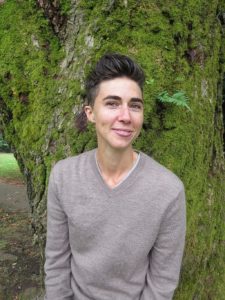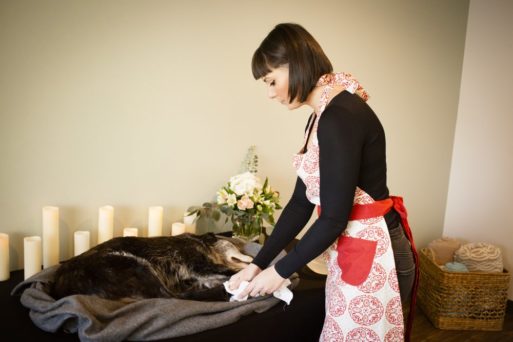
Natural organic reduction resembles the decomposition process that occurs naturally on the forest floor
The State of Washington has just authorized historic legislation that will legalize two new methods of final disposition in the state. Now awaiting the signature of Gov. Jay Inslee, the measure will allow “natural organic reduction” (formerly known as “recomposition”) and alkaline hydrolysis of human remains.
Passage of the measure is a big win for Katrina Spade and her team at the Washington-based public benefit company, Recompose. Ms. Spade has been working with researchers at Washington State University since 2012 to develop the process of natural organic reduction, which she defines as the “contained, accelerated conversion of human remains into soil.”
According to Spade, the process is a speeded-up version of what happens on the forest floor. Using a special mix of carbon, nitrogen and oxygen, it accelerates the natural microbial activity that turns organic material, including human bodies, into humified matter (also known as compost).
Helping to Fight Climate Change

Katrina Spade
Credit: Katrina Spade via Wikipedia
In addition to offering the citizens of Washington more options for final disposition, the legislation marks a step forward in the fight against climate change. According to research conducted by Dr. Troy Hottle, Ph.D., senior environmental sustainability and life-cycle assessment analyst at Eastern Research Group and a former post-doctoral fellow at the U.S.Environmental Protection Agency, the process not only avoids the carbon footprint of cremation and traditional cemetery burial, it actually sequesters carbon, thus lessening the amount of carbon released into the atmosphere. According to a recent email from Spade, Hottle estimates that the total “carbon savings” for each person who chooses the Recompose process over cremation or burial is “approximately as much carbon as is absorbed by an acre of pine forest over an entire year.”
A separate analysis conducted by Hottle and Project Drawdown, a research effort led by scientists from around the world that has ranked the 100 “most substantive, existing solutions to address climate change,” concluded that natural organic reduction, if fully implemented by 2050, would have a positive impact that fell somewhere between the restoration of coastal wetlands (No. 52) and high-speed rail (No. 66).
Dr. Hottle recently joined the Recompose advisory team.
What the Future Holds
The process of natural organic reduction as a means of final disposition is still in the development phase. Now that the legislature has approved it, Recompose can move forward and begin to create a model for implementing the process throughout the state. At present, the company has not released a potential launch date, but you can sign up for news and updates here.

Resting Waters in Seattle currently provides alkaline hydrolysis for pets
Credit: Resting Waters via Yelp.com
Meanwhile, alkaline hydrolysis may be available more quickly, since it is already legal in several other states. What’s more, Washington already allows alkaline hydrolysis for deceased pets. The process uses an alkaline solution of water and either sodium hydroxide or potassium hydroxide to reduce soft tissue to a liquid, which is then disposed of as wastewater. The bones are preserved and later pulverized into “ashes” that the owner of the pet can take home. This is much the same process as is used for humans, although the machines are, of course, larger and are usually pressurized.

 Washington Legalizes Two Novel Methods of Final Disposition
Washington Legalizes Two Novel Methods of Final Disposition



 “Help Me, Helen”
“Help Me, Helen”















